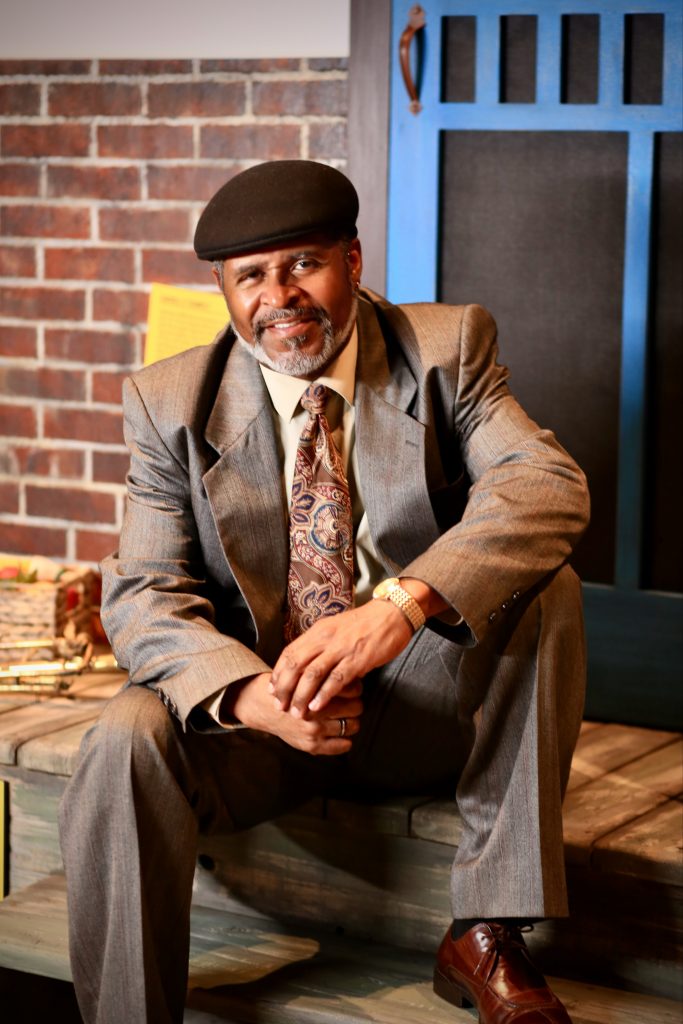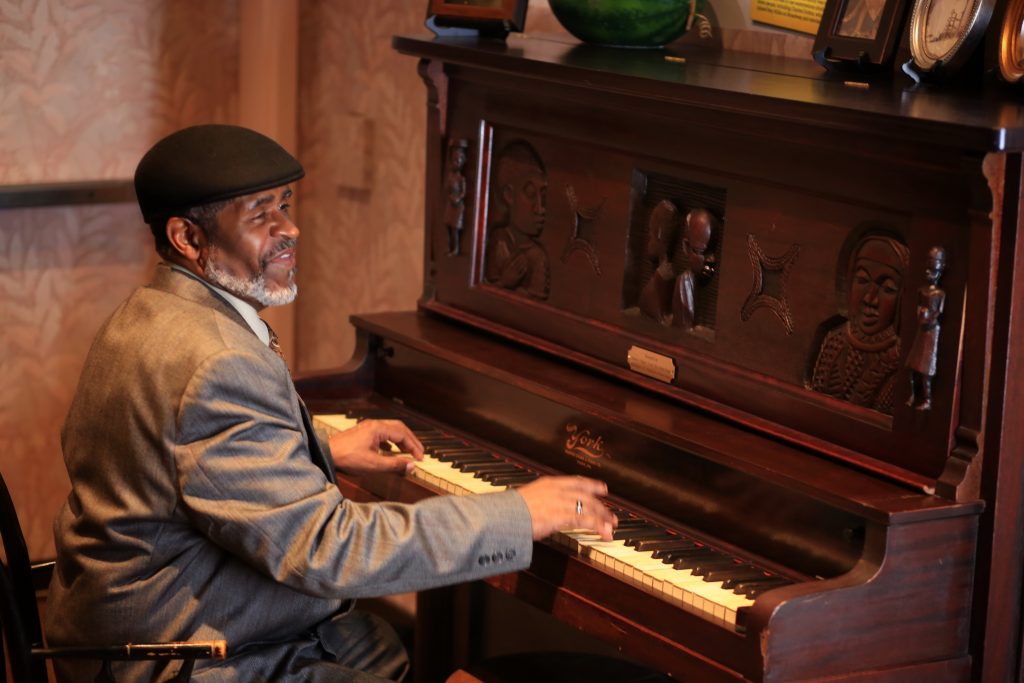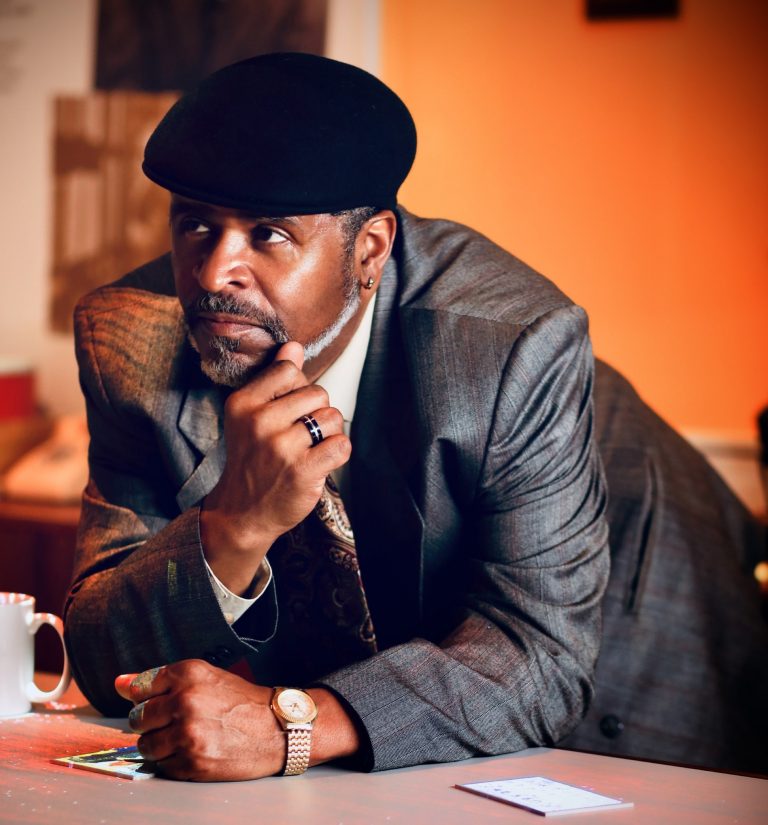The busy actor is the only performer in the world who’s done all 10 of August Wilson’s plays and the playwright’s one-man show.
By Ervin Dyer
Wali Jamal Abdullah, a native of Pittsburgh’s St. Clair Village, wanted to act even as a child. As a younger man, he tried stand-up. He could do spot-on imitations of actors Tommy Chong and Arnold Schwarzenegger, Steelers commentator Myron Cope, and others. But he didn’t get his professional start in acting until 1999. He was 36 years old.
Abdullah began with Pittsburgh’s legendary Kuntu Repertory Theatre, which focused on Afrocentric storytelling. After his introduction with Kuntu Rep, his star kept rising. He would eventually make dramatic and musical debuts on every major stage in Pittsburgh.
Among other shows, Abdullah performed in “To Kill a Mockingbird,” “The Little Foxes,” “Our Town,” “One Flew Over the Cuckoo’s Nest,” “Parade,” “Once On This Island,” “The Civil War,” “The Full Monty,” “Kinky Boots,” and most recently, “Our Song.” Along the way, he’s been a featured extra in movies with Bruce Willis, Andy Garcia, Danny Aiello, and Michael Keaton. He played the drummer in the 1969 Copacabana scene in NBC’s The Temptations (1998).
But his greatest accomplishment—the one he’s most proud of—comes from his singular achievement of acting in all 10 of Pulitzer Prize-winning playwright August Wilson’s Century Cycle plays and Wilson’s staged autobiography, “How I Learned What I Learned.” Wilson was born 79 years ago in the Hill District, the setting for nine of his Century Cycle plays. Abdullah is deeply drawn to Wilson’s body of work, as many of the playwright’s characters are a lot like him, an individual in pursuit of his dreams.
Wilson’s plays have taught me as an actor and playwright to find and exude the dignity of whatever character I play.
Wali Jamal Abdullah, actor/playwright
For completing all of Wilson’s plays, Abdullah has received citations from the Pennsylvania House of Representatives, Allegheny County Council, and Pittsburgh City Council. In 2018, the milestone earned him recognition as the Pittsburgh Post-Gazette’s Performer of the Year. He is the only actor to have performed “How I Learned What I Learned” at the National Black Theater Festival, which he did in 2019.
Abdullah is writing a book, Ain’t Nobody Stud’n You! An Actor’s Journey Through the Century Cycle of August Wilson. Each chapter covers his experience with each of the 11 plays. Abdullah has now been a professional actor for 25 years. But for someone who got started so late, the Wilson accomplishment is something he looks back on in wonderment.
“I didn’t set out to do this,” he says, “It didn’t even occur to me until I got my seventh Wilson show under my belt, and it didn’t look like the other three were coming down the pike anytime soon. But I just kept working and [local playwright] Mark Southers kept putting Wilson shows up and he kept casting me.”
Abdullah’s first Wilson play was “Ma Rainey’s Black Bottom” in 2003. He completed the cycle with “King Hedley II” in 2018, the same year he performed in three other Wilson plays. His most recent Wilson performance was in February 2023 in a University of Pittsburgh production of “Seven Guitars.” Later that month, Abdullah performed “How I Learned What I Learned,” at Marietta College. “There are guys who have performed the one-man show, and then there are other people who have performed in all 10 plays,” he says. “But I’m the only one, I’m the first who’s done both.”

In this Q&A, Abdullah reflects on how he learned what he learned from August Wilson:
What did Wilson teach you about honoring your talent?
Ironically, that lesson came while I was performing in “Joe Turner’s Come and Gone” in October of 2005. It’s the same time that August Wilson died. I was an usher at his funeral. But it is during that play and mourning for August Wilson when I discovered that August Wilson was revealing the secret of life through his characters. The character Bynum [in “Joe Turner’s Come and Gone”] describes it as “finding your song.” Your song is that certain strength or talent that everyone possesses. I once heard, “God has endowed you with gifts and talents that will enable you to stand before kings.” That platitude echoes in my mind whenever I look at the photograph of me standing with a smiling August Wilson or of me shaking hands with Denzel Washington.
What did Wilson teach you about finding your “song”?
When I performed in “Seven Guitars” (four times), it seemed like each cast member was a musician—each one representing a different instrument. Each performing their own solo. Their respective solos [are] defined as ‘what they want’ from life. Well-developed characters are defined by what they want. By the end of the play, they leave you with an understanding of what each character wants out of life. This play and plays like it have an introspective effect on an open-minded actor. Your voice eventually becomes the loudest in your head, inducing you to think and believe more of your own thoughts and mapping out your own destiny.

What did Wilson teach you about honoring your history?
On the day I met, worked, and spoke with August Wilson [in] 1999, I asked him for advice about pursuing playwriting. He told me, ‘Write what you know.’ I then asked myself: what the heck do I know? I answered myself: I know a little about Black history. So, I began to write a Black history play called “Robert Smalls, Legend of the Black Mariner.” It required a lot of research before I could “write what I know.” I found out that when you research one thing, you find out a hundred other things…if you want to know. I did. I finished the play in 2002 and it won the playwriting competition at Karamu House (Cleveland) and now 22 years later, the play was recently performed at the Children’s Legacy Theater in Washington, D.C. That interest in sharing our history has grown into starting a YouTube channel called History’s Flipside and working at the Senator H. John Heinz History Center, where I perform as Pittsburgh’s first Black doctor, Martin Delany, who I wrote three plays about and whom I represent every year in the Juneteenth Parade. And I portray him frequently in my work with schools. Once again, proving to me that August Wilson definitely knew the secret of life.
What did Wilson teach you about the purpose of Black theater?
The purpose of Black theater is for our stories to be told. The 10-play Century Cycle has provided so much work in Black theater. Our existence in white theater, historically, has had us relegated to servile, illicit, or dishonorable roles. Wilson’s plays have taught me as an actor and playwright to find and exude the dignity of whatever character I play.
Ervin Dyer is a writer who focuses his storytelling on Africana life and culture.


